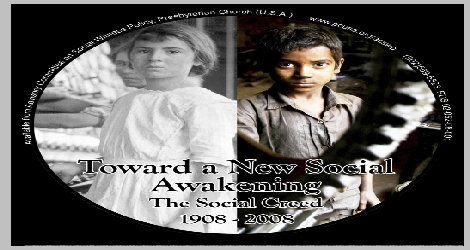[wpcol_1half id=”” class=”” style=””]
Swapping Salaries
A story has been told about advice that Clarence Jordan, Baptist minister and founder of Koinonia farms, gave to a pastor who complained that he could not persuade the Board of Deacons at his church to increase the custodian’s pay. Jordan asked the pastor how many children the custodian had to support. The pastor replied, “Eight.” Jordan then inquired as to how many children the pastor had. “Four,” the pastor responded. Knowing that the pastor made more money than the custodian, Jordan suggested that the pastor “swap salaries” with the custodian and thought the problem was solved.
I have heard this story used as a sermon illustration, raising not only significant questions among members of the congregation but also some anger. For some, it seemed unnatural to pay the custodian, whose job was considered to be less prestigious, the same amount as, if not more than, the pastor. Others wondered why the pastor who preached this sermon did not “practice what he preached.” The preacher’s congregation at the time paid its custodial staff minimum wage. The point that seemed obvious to Jordan was that remuneration for work should not be set according to what job society considered more prestigious or by value judgments placed on what was considered “good” or “bad” work. Pay should not even be set according to the value placed upon it by market competition. If we believe that all human beings are valued by God and created as equals in God’s image, then wages should show that both the work and the worker are valued and be adequate to satisfy worker’s basic needs.
[/wpcol_1half] [wpcol_1half_end id=”” class=”” style=””]
The practice of considering the needs of others along with one’s own individual and family needs is firmly rooted in biblical teachings and a long Christian tradition. The author of Acts characterized the early Christian community in this way:
Now the whole group of those who believed were of one heart and soul, and no one claimed private ownership of any possessions, but everything they owned was held in common … There was not a needy person among them, for as many as owned lands or houses sold them and brought the proceeds of what was sold. They laid it at the apostles’ feet, and it was distributed to each as any had need (Acts 4:32; 34-35).
What might we as a society and in Christian community gain by practicing an ethic that considers the needs and interests of others along with our own self-interest? How would we need to reconsider the economic value placed upon different forms of work in American society? What changes would need to be made for our society and our Christian communities to reflect the ideal that there should not be a needy person among us—where all can satisfy their own basic needs?
[/wpcol_1half_end]





Unbound Social